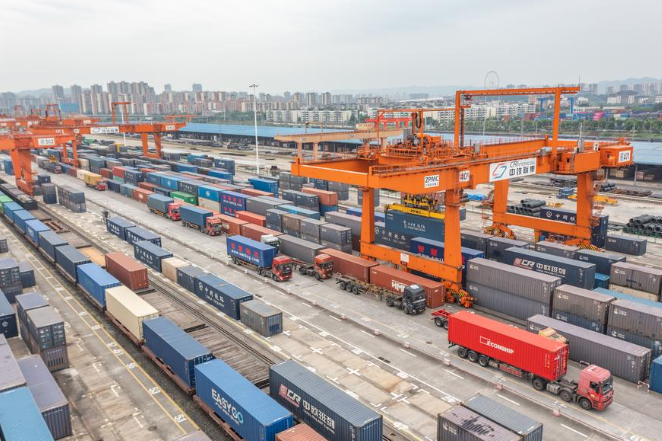China and the US should resolve issues together, US experts say

Global tectonic forces are reshaping geopolitical and economic relations between China and the US, and the two countries should find common interests and resolve issues together, a group of business and political leaders from the United States said on Friday.
There are some monumental issues between China and the US, "but what we can do at a minimum is create a space for discourse to come to the table, not clinging to ideologies of who's right, or who's wrong," Gary Locke, former US secretary of commerce, ambassador to China, and governor of Washington State, said in his remarks at an annual conference in Washington DC.
Themed "Chinese Americans in the new millennium: heralding today’s achievements, shouldering yesterday’s burden," the opening remarks are part of the ongoing annual conference held by the Committee of 100 (C100), a premier US organization of Chinese-American leaders from different fields.
"Yes, there are huge differences between our two governments, the governments of the United States and the People's Republic of China, but we also have so much more in common. And the world is looking for leadership and cooperation between our two countries to solve some of the most complex issues facing the entire globe," said Locke. "China cannot do it alone. The United States cannot do it alone."
Today, there are some 1,100 Chinese companies that are sanctioned by the US government, according to Craig Allen, president of the US-China Business Council (USCBC). "I have to note that they are sanctioned only by the US government. These are unilateral sanctions that have been imposed on these companies by only the US government."
"The unfortunate fact of the matter is that after American sanctions go into place, as the Americans are walking out, the Europeans and the Japanese are rushing in. And therefore, sanctions have an asymmetric impact on American companies without furthering our foreign policy goals," Allen said at a conference panel that discusses how global tectonic forces are reshaping US-China geopolitical and economic relations.
He said the overuse of sanctions and the expansion of sanctions is something that "we need to watch very closely".
He divided companies or businesses into three different areas. In the first area, consumer goods companies, such as agricultural companies and energy companies, "are doing really well".
China has one of the fastest-growing middles classes in the world. With 400 million middle-income earners, projected to grow to 600 million over the next few years, China will further unlock its market potential and create greater demand for other countries. And American companies "want to be there", said Allen. "We're fully bullish on that."
The second area, said Allen, is most of the industrial companies, including chemical companies and automotive companies. "They are very happy and moving forward with investments."
But companies in the third area, which include those who are mostly concentrated in the high-tech sector, are having more uncertainties, said Allen.
"Unfortunately…using national security concerns as a kind of a cloak to protect industrial or other constituencies in the US, or court protectionism, is becoming more apparent," said Allen. "Do we really need national security controls over the life sciences sector? What are the implications of those controls for American companies or the curing of cancer, or resolving the next epidemic?"
"So I would say, to the extent that, you could be cast in a national security life, which is growing ever wider all the time. Then, companies are more concerned to the extent that you are outside of that line," he said.
The China-US relationship is becoming a competitive one by "trying to focus on not what we're against, but what we're for, what are our comparative advantages and how do we focus on ourselves to make ourselves stronger", Melanie Hart, senior advisor for China and the Indo-Pacific in the Office of the Under Secretary of State for Economic Growth, Energy and Environment, said at the same conference panel.
































